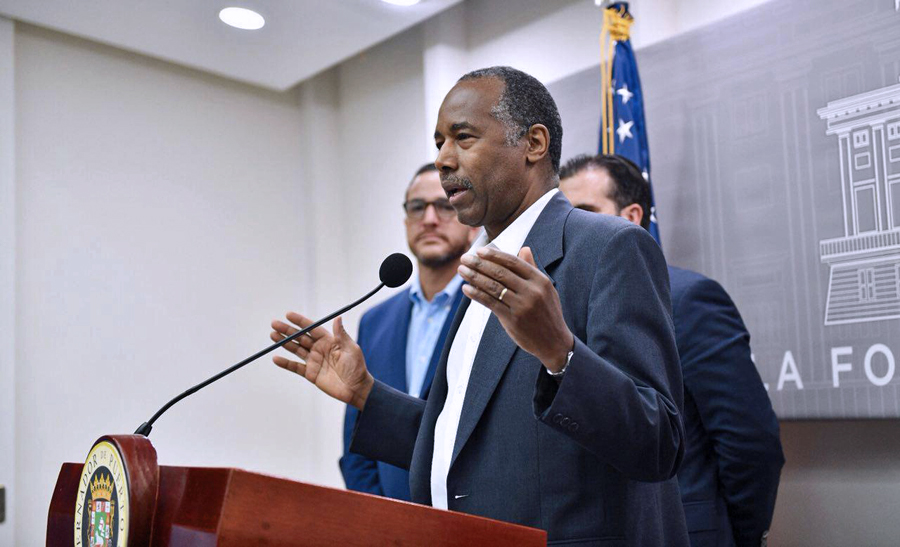HUD awards $125,500 to help P.R. families reach self-sufficiency

U.S. Housing and Urban Development Secretary Ben Carson awarded $125,567 to four public housing authorities in Puerto Rico to continue helping public housing residents participating in the Housing Choice Voucher Program and/or reside in public housing to increase their earned income and reduce their dependency on public assistance and rental subsidies.
The funds will be split as
follows: Municipality of San Germán ($56,816); Municipality of Bayamón ($28,324);
Municipality of Ponce ($15,040) and the Municipality of San Juan ($25,387) HUD
stated.
Nationwide, these grants renew
HUD’s support of 689 public housing authorities through the Department’s Family Self-Sufficiency Program (FSS). HUD’s FSS
Program helps local Public Housing Authorities to hire Service Coordinators who
work directly with residents to connect them with programs and services that
already exist in the local community.
The program encourages
innovative strategies that link housing assistance with a broad spectrum of
services that will enable participating families to find jobs, increase earned
income, reduce or eliminate the need for rental and/or welfare assistance, and
make progress toward achieving economic independence and housing
self-sufficiency.
“One of the most important
things we can do as public servants is to help HUD-assisted families achieve
their dreams,” said Carson. “Working with our local partners, HUD is
connecting families to educational opportunities, job training, childcare and
other resources that allow them to get higher paying jobs and, ultimately,
become self-sufficient.”
“These funds fuel what I
have seen firsthand that provide innovative and impactful life skills training,
childcare and higher education and vocational opportunities, all of which
change lives for the better,” added HUD Southeast Regional Administrator
Denise Cleveland-Leggett.
FSS participants sign a
five-year contract that requires the head of the household to obtain employment
and that no member of the household will receive certain types of public
assistance at the end of the five-year term.
These families have an
interest-bearing escrow account established for them. The amount credited to
the family’s escrow account is based on increases in the family’s earned income
during the term of the FSS contract.
If the family successfully
completes its FSS contract, the family receives the escrow funds that it can
use for any purpose, including debt reduction in order to improve credit
scores, educational expenses, or a down payment on a home.
The average household income of
FSS participants nearly tripled during their time in the program, from $10,000
at the time of entry to more than $27,000 upon program completion.













